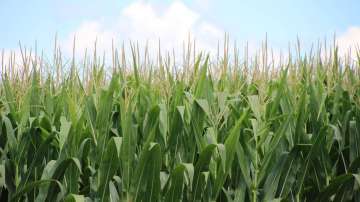NASA is planning to install a new instrument on the International Space Station (ISS) which will measure the temperature of plants from space with the help of water usage. It will also help in studying how drought affect plant health.
The instrument will be called ECOSTRESS, or ECOsystem Spaceborne Thermal Radiometer Experiment. ECOSTRESS will measure the temperature of plants from space which will enable researchers to determine plant water use and to study how drought conditions affect plant health.
NASA quoted that plants draw in water from the soil, and as they are heated by the Sun, the water is released through pores on the plants’ leaves through a process called transpiration. This cools the plant down, much as sweating does in humans. However, if there is not enough water available to the plants, they close their pores to conserve water, causing their temperatures to rise. Plants use those same pores to take up carbon dioxide from the atmosphere for photosynthesis – the process they use to turn carbon dioxide and water into the sugar they use as food. If they continue to experience insufficient water availability, or “water stress,” they eventually starve or overheat, and die. ECOSTRESS data will show these changes in plants’ temperatures, providing insight into their health and water use while there is still time for water managers to correct agricultural water imbalances.
“When a plant is so stressed that it turns brown, it’s often too late for it to recover,” said Simon Hook, ECOSTRESS principal investigator at NASA’s Jet Propulsion Laboratory in Pasadena, California. “But measuring the temperature of the plant lets you see that a plant is stressed before it reaches that point.”
These temperature measurements are also considered an early indicator of potential droughts. When plants in a given area start showing signs of water stress through elevated temperature, an agricultural drought is likely underway. Having these data in advance gives the agricultural community a chance to prepare and/or respond accordingly, NASA said.

